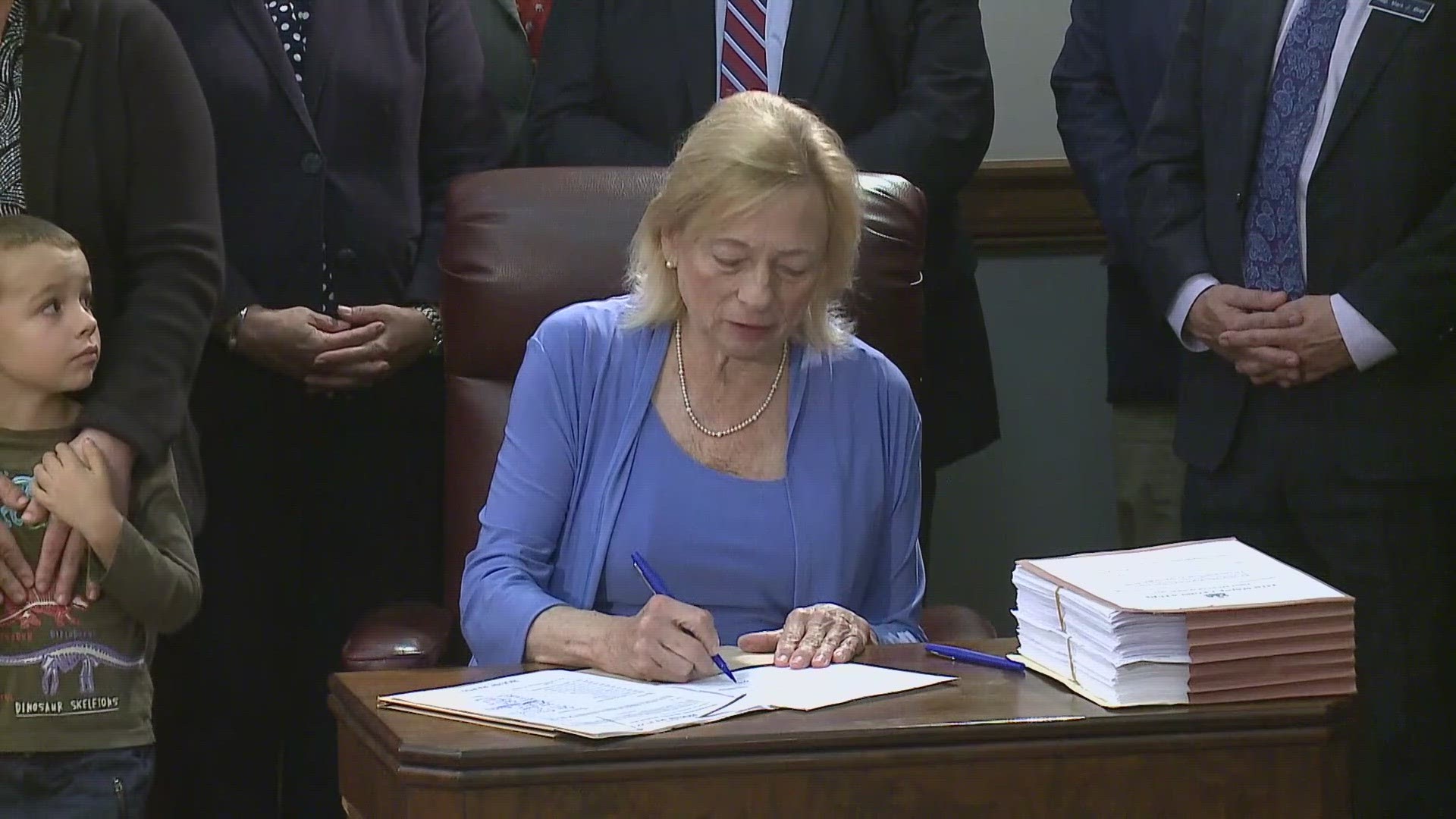AUGUSTA, Maine — Maine Gov. Janet Mills officially signed the second part of state's next supplemental budget into law on Tuesday.
The signing of the budget into law was delayed as lawmakers battled over several hot-button bills.
A major portion of the $800 million budget is designated as funding for paid family and medical leave. It also builds upon the first half of the budget and includes investments in Maine housing.
The package passed through the House and Senate last week and will go into effect in 90 days, because it did not receive the supermajority support in the legislature that it needed in order to be enacted immediately.
Sen. Mattie Daughtry, D-Brunswick, and Rep. Kristen Cloutier, D-Lewiston, championed paid leave bills in their respective chambers.
"I think this is an absolutely historical and transformational budget," Daughtry said in an interview after the signing. "We were able to have things that both sides talked about. I mean, the pension tax cut that's in there is something that I know will make a huge difference to my constituents."
This spring, Mills made stops at businesses to push support for the Dirigo business incentive program, which is in the budget, replaces the current longstanding and expiring program and rewards businesses for retaining and training skilled employees.
Rep. Jack Ducharme, R-Madison, voted against the budget bill, both in the appropriations committee and in the House. Wearing a money-patterned tie, he attended the signing, though not to cheer. While thanking colleagues for supporting "business-friendly" initiatives like the Dirigo program, he wanted to show displeasure for the state now funding programs like paid leave, calling it a tax on employers who could end up leaving Maine because of it.
"Looking after the working-class people is what we've been trying to do by reducing the burden of government. And, in order to do that, we have to stand strong against some of the spending," Ducharme said.
The budget also includes investments in child care, tax breaks for certain qualifying individuals, and increased financial support for government funded community college for another two years.
"This historic budget delivers on my guiding belief that the way to build a stronger, more prosperous state is to invest in the infrastructure that Maine people need to succeed," Mills said in the announcement. "From establishing a paid family and medical leave program to strengthening education, housing, child care, our workforce, and delivering tax relief for seniors, this budget makes transformative investments in Maine people. And it does so while living within our means."
Sen. Rick Bennett, R-Oxford, said he believed the budget was not perfect, but he voted for it and stood with the governor and other lawmakers during the signing.
"I supported the budget. I think it’s better than it would have been without my involvement; without Republican involvement overall," he said. "We got some tax relief in there which, I think when you add it up, comes to, by my math, over $700,000,000 over the next few years, of tax relief. I also see that there’s some initiatives in there that I support, too, on a bipartisan basis."
“This final budget delivers critical support and services to protect the health and wellbeing of the people of Maine,” Kirsten Figueroa, commissioner for the Department of Administrative and Financial Services, said.
Shortly after the governor’s signing, the White House issued a statement, applauding Maine for becoming the 13th state to install a paid family and medical leave system.

